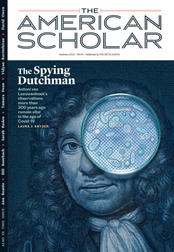Random Read
Night Vision {excerpt}
For American farmers, life changed dramatically in 1937. That year, electricity began flowing to hundreds of thousands of rural households, including some 12,000 in Wisconsin. The Rural Electrification Act (REA), which President Franklin D. Roosevelt had signed into law the previous year, provided stimulus for utilities to install poles and wires where, until then, it hadn’t been economical to do so.
Most farmers were thrilled. One who lived near Janesville, Wisconsin, said of the power company crew, “I thought sometimes that they weren’t ever goin’ to get here. The organizers told us we’d have juice by spring. But we finally did get it, and by golly, I’m goin’ to shoot the works.” He showed a city reporter every electric light in his barn. His newspaper profile reads like REA propaganda, and it might have been. To persuade skeptical farmers—who, with the Great Depression fresh in their memory, balked at the prospect of a monthly electric bill—the REA mounted a forceful public relations campaign. Agents traveled across the country demonstrating electric appliances. Theaters presented a popular film, Power and the Land, which touted the benefits of electricity for agricultural operations and concluded with the line, “Things will be easier now.” Part of the REA’s campaign focused on convincing women. Electricity would give them lights, refrigerators, ovens, vacuum cleaners, washing machines, and irons they could plug into an outlet. It would end their drudgery, the government promised.
But Jennie Harebo, a 64-year-old woman from central Wisconsin, wasn’t having it. After her town’s rural electric cooperative set eight poles and lines on her property, she sawed down one of the poles and parked her coupe on the downed wires. She stationed herself in the car, armed with a shotgun and a hoe. Newsmen called it a “sit-down strike,” a “vigil,” a “blockade.” Her husband, an “invalid,” brought her food. At dusk, she gathered blankets around her shoulders and lap and cradled the shotgun. One night, two nights, three nights she stayed. A sign on the windshield read, Notice: No Trespassing. Harebo allowed no negotiating, entertained no tit-for-tat. Months earlier, she and her husband had won a case in the state’s supreme court that saved a riparian corner of their property from being seized by men who wanted to build a dam. The REA’s lawyer must have suspected that his client’s case was doomed.
I imagine that Jennie Harebo, a woman of a certain age, was fed up with men’s impositions. Now they were trying to force lines through her vantage, light into her dark. Maybe she wanted to hold fast to twilight powers—the wonderment, the wisdom, the privileged views. Maybe she was simply cantankerous in the original sense of the word, which is rooted in the notion of “holding fast.”
What could she have seen in her three nights’ vigil? North Star, both Dippers, crescent moon’s shine on the pump handle—the fixtures of haiku masters. Also, quotidian country lurkers and skulkers. Her night vision undefiled by electric shine, she surely saw scavenging raccoons, ambling possums, scuffling skunks. Maybe a lynx’s glassy gaze. She heard more, too, than her city relatives in their wired homes with their humming lights and fans and blathering radios. She could have made out the lawyer’s Pontiac approaching from a distance of 10 miles. She had plenty of time to aim her Remington out the driver’s side window.

